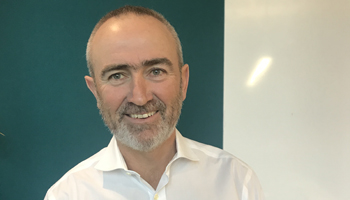How fixed income is getting on the ESG treadmill
ESG investing, one of the major thematics of the last few years and, no doubt, the next many years, is not just about equity investing. Fixed income is becoming increasingly ESG focused. Insight Investment tells how it is going about the new wave of ESG oversight.
Bruce Murphy, director, Australia and New Zealand, at Insight Investment, says that when investors think about ESG it tends to be in the equities markets. However, fixed income and other debt-related investment strategies are just as important. Fixed income investments need to be as clean, green and mean as any other.
What we’re talking about is this: fixed income investments need to take on board all the ESG factors that other asset classes do. Every single investment, from an institutional investor’s point of view, needs to involve ESG strategies. We are actually moving way beyond what used to be regarded as “ethical screens”. The new world of institutional investment is all about sustainability, including in the fixed income arena. Here is one fund manager’s view.
According to Murphy, his firm set about addressing the ‘G’ (governance) way back after the ‘tech wreck’, around 2001-2002. Now, it’s more about the ‘S’ and ‘E’ than the ‘G’, he says. The ‘G’ is much easier to prove than the other letters.
Governance is a given. The other two, ‘E’ and ‘S’, are still proving themselves. With equities investing that seems easy enough. With fixed income, however, it’s a little more difficult. Insight has produced a paper on the subject.
“Now, the ‘E’ and ‘S’ are carrying more weight,” Murphy says. “We are tracking and monitoring all the market data. About 15-20 per cent of companies globally not transparent enough for us to fully assess. We have a ‘credit engagement program’ to get their data.”
He says: “If I think of the different phases of ‘ESG’ what we do is start out with our risk management process. And then we start our engagement process… If they are prepared to engage with us, that will usually be a good investment… ESG is not just about exclusion, It’s also about improving the base on which we all invest.”
Murphy says it is mostly about the “desire to engage”, which includes how the fund manager, Insight Investment, which speaks for nearly US$1 trillion under management, communicates with both its investee companies and its clients, such as some big Australian super funds. As we said: it’s all about the engagement.
Murphy says that Insight tries to engage with companies such that the manager has a positive impact which also provides for a better strategic risk management assessment of the portfolios. “We also engage with the sell-side brokers, which allows us to ratchet up the pressure.”
It is easy to understand the ESG principles in the credit markets. That’s about making judgement calls on the companies with which Insight and other managers make their loan or investment decisions. Sovereign bonds, though, are a different question. Sovereign bonds represent a top-down decision, which is more to do with the policies of the various governments. It’s pretty much impossible to engage with a government.
“Sovereign bonds are a new frontier,” Murphy says. “We’re going to publish a new paper on sovereign bonds and ESG investing, with a particular emphasis on emerging markets… Emerging markets have traditionally had poorer ESG elements, but that is changing.”
Insight has a “sustainable bond fund’ in Europe which identifies the issuers and then assesses their relevance to their ESG principles.
Insight has built a model to assess climate change risks, for instance, and has published this generally. “We are not trying to keep all of our work proprietary,” Murphy says. “We’d like to offer our work as a service to all funds. We want to show them that we can make a difference.”
– G.B.










